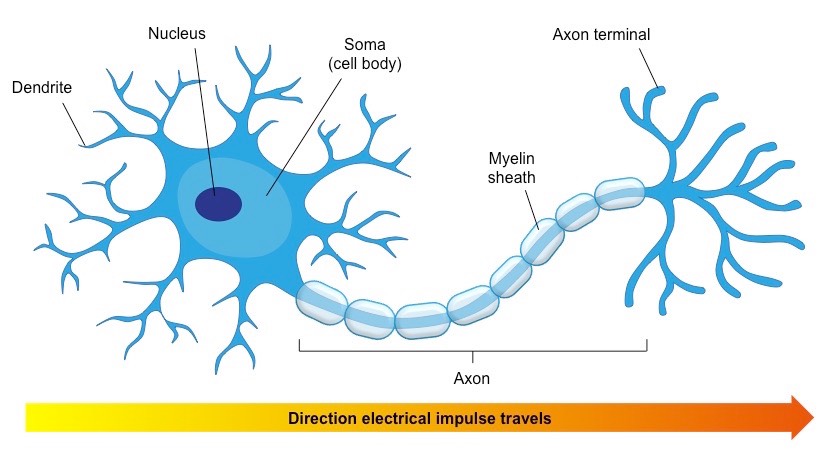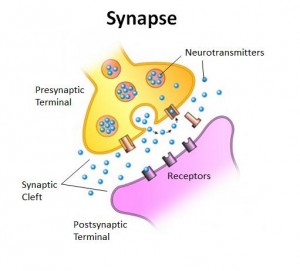Neurons
By Meghann Marshall
starstarstarstarstarstarstarstarstarstar
Last updated about 4 years ago
12 Questions
For reference to help you with this assignment, please read below before answering the questions. Each worksheet has a word bank to help you answer the questions as well.
Nerve Cells
Although the nervous system is very complex, nervous tissue consists of just two basic types of nerve cells: neurons and glial cells. Neurons are the structural and functional units of the nervous system. They transmit electrical signals, called nerve impulses.
Neuron Structure
As shown in Figure below, a neuron consists of three basic parts: the cell body, dendrites, and axon.
- The cell body contains the nucleus and other cell organelles.
- Dendrites extend from the cell body and receive nerve impulses from other neurons.
- The axon is a long extension of the cell body that transmits nerve impulses to other cells. The axon branches at the end, forming axon terminals. These are the points where the neuron communicates with other cells.


1
1.
These structures of the neuron RECEIVE information from other cells. They are called
These structures of the neuron RECEIVE information from other cells. They are called
1
2.
What part of the neuron is pictured in #2?
What part of the neuron is pictured in #2?
1
3.
Three is indicating the very ends of the axon. They are called
Three is indicating the very ends of the axon. They are called
1
4.
Number four is pointing to the "command center" of the cell. It is the
Number four is pointing to the "command center" of the cell. It is the
1
5.
Number five is the structure that carries the signal AWAY from the cell body. It is the
Number five is the structure that carries the signal AWAY from the cell body. It is the
Communication Between Neurons
Neurons communicate with each other at specialized junctions called synapses. Synapses are also found at junctions between neurons and other cells such as muscle cells (see below).
There are two types of synapses:
- Chemical synapses use chemical signaling molecules as messengers. We are focusing on this type of synapse.
- Electrical synapses use ions as messengers.
At a chemical synapse, the axon terminal of one neuron usually does not touch the other cell; the gap is called a synaptic cleft. The transmitting cell is called the presynaptic neuron, and the receiving cell is called the postsynaptic cell or, if it is another neuron, the postsynaptic neuron.


1
6.
Number 6 is pointing to
Number 6 is pointing to
1
7.
Number 7 is showing the space between two neurons. This area is called the
Number 7 is showing the space between two neurons. This area is called the
1
8.
Number 8 is the structure along which messages are SENT OUT. It is the
Number 8 is the structure along which messages are SENT OUT. It is the
1
9.
Number nine is pointing to the
Number nine is pointing to the
1
10.
Numbet ten is showing the
Numbet ten is showing the
1
11.
This part of the neuron is RECEIVING the chemical message. It is a
This part of the neuron is RECEIVING the chemical message. It is a

1
12.
Please answer this two part question completely. You MUST use the terms brain, motor neurons, sensory neurons, and spinal cord in your response.
Please answer this two part question completely. You MUST use the terms brain, motor neurons, sensory neurons, and spinal cord in your response.